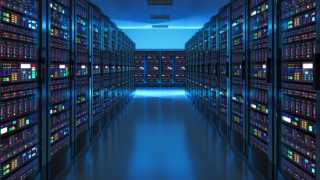The report, Impact of Data Centres on Energy Demand and Market Prices, warned that without investment in new power transmission and generation capabilities, regulators may have to hike rates to meet growing demands.
The report suggests that a lone ChatGPT query requires around 10 times as much power compared to a standard Google search, with even more intensive workloads like inference and large language model training requiring even more energy.
Subscribe today for free
“As data centre expansion accelerates, consumers and small businesses are likely to bear the brunt of the consequences through higher electricity costs and brownouts and blackouts across the country,” said Ike Brannon, co-author of the study and a senior fellow at the Jack Kemp Foundation.
The report looked at key data centre markets as a microcosm of the wider issue, with facilities in Virginia highlighted as potentially using almost half of the state’s total electricity by 2030.
Beyond Virginia, the report suggests that data centres in North Dakota could claim 31% of the state’s electricity supply, while Nebraska, Iowa, and Wyoming could see up to 24% of their electricity go toward energy-intensive facilities.
The think tank warned that as data centres expand across the country to take advantage of the demand for AI services, energy impacts could spread across the country, impacting millions of Americans.
“The average American household could pay over a thousand dollars more each year for electricity by the end of the decade if we don’t take urgent steps to resolve these energy shortages,” Brannon added.
The think tank outlined several policy recommendations it stated could help accommodate increasing demands for power while protecting consumers and businesses.
Among the recommendations include easing permit processes for new electricity generation and transmission infrastructure.
The report also calls for data centres powering AI workloads to face tougher scrutiny, making them required to bear the additional costs of the energy they consume to “reflect their disproportionate impact on electricity markets.”
Data centres that employ measures to reduce the amount of power they consume should qualify for a reduced tax rate incentivising sustainable practices, the think tank suggested, while local governments should reduce subsidies offered to data centres and instead redirect funding to more sustainable economic drivers.
“Policymakers must take immediate steps to shield consumers and small businesses from the negative impacts of rapidly rising energy demand,” Brannon said.
RELATED STORIES
Amazon turns to low-carbon steel for greener data centre projects
Nvidia, Vertiv leaders on the next steps for data centres in the AI era
Altman-backed startup acquires Atomic Alchemy to boost nuclear fuel supply






